Meet the Faculty: Common Question Conversation Leaders

Written by Jenna Movsowitz
Hopkins and Peabody undergrads are not just classroom students. They are thinkers beyond the confines of a lecture hall or practice room. They are eager learners, searching out answers to the world’s largest questions through both formal research and informal discussion. In 2019, the Common Question (CQ) was introduced to the Hopkins community for the first time with the goal of encouraging that natural curiosity. For the 2020-21 academic year, the CQ is “What is Common Good?”This big question can be explored through compiled sources from creative, scientific, and humanistic perspectives. While these sources are intended to spark conversations that can take place anywhere—from residence halls to the FFC—faculty members across all disciplines also offer Common Question Conversations (CQCs)—informal discussion sessions where faculty and students talk and learn together.
In our most recent Blue Jay Family webinar, “What is the Common Good? Hopkins Faculty Address this Year’s Common Question,” we learned about CQ from its co-founders: Kelly Barry, Anne-Elizabeth Brodsky, Hannah Shea, and Aliza Watters. In this webinar, we discussed CQ’s efforts in community-building and cross-disciplinary learning and research; if you weren’t able to join us, we invite you to watch the recording. Here, we’ll build on that discussion by introducing you to a handful of the more than 70 faculty members from Krieger, Whiting, and Peabody, who hosted Common Question Conversations.
Dr. Suhnne Ahn, Peabody
Director of Peabody at Homewood Program, Musicology
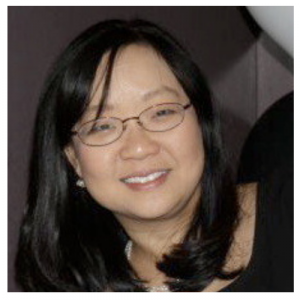
Dr. Suhnne Ahn
“The exercise of some common experience or discussion prompt is a marvelous mechanism toward building cohesion within a class of students who belong to different undergraduate divisions of a university,” Dr. Ahn says. She has had previous experience with a similar endeavor at University of Pennsylvania and was thrilled to participate at Hopkins. “The CQ is a fantastic way to launch a group of young people from different parts of the world. Such endeavors thrive when students embrace natural curiosity and open braininess as part of their shared identity.”
During the fall semester, Dr. Ahn was a section leader for three separate CQCs. In her small groups, students discussed Michael Sandel’s article “Are We All in This Together?” She told us: “I felt it was incumbent on faculty who care about students to engage with our incoming first-year students in any way possible to compensate for the significant loss the class of 2024 experienced this year. Normally, when a class of students begins their undergraduate experience together, they exchange ideas in the classroom, of course. More importantly, though, they learn from and about each other in the loveliest and most serendipitous ways by being on a physical campus together—walking from one building to another, chatting until 2 a.m.in a residential lounge, sitting across the table with a complete stranger in the dining hall—these experiences are generally ‘baked into’ the first year of college.”
The catalyst for these conversations, she notes, is usually the summer and the accompanying events before arriving at college. “Imagine what our first-year students witnessed this past summer: a pandemic, Black Lives Matter protests, an election in progress. These are all topics that would have fueled conversations between our students in Baltimore, and they’ve been denied—thus far—the usual opportunity to explore and review these events together as a collective.” Thus, for Dr. Ahn, CQ was an opportunity to gather JHU students through some shared lens—even if the discussion took place via Zoom. “Our students were amazing—bright, engaged, thoughtful, and eager to absorb ideas from each other.”
Dr. Nicholas Papageorge, Krieger
Associate Professor of Economics
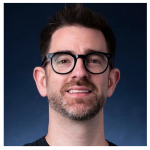
Dr. Nicholas Papageorge
As a professor of Economics, Dr. Papageorge feels that this year’s CQ has been ingrained in his coursework since its conception. Questions like “How should we think about the common good when developing policies? When is freedom to choose what you want in life your own business? When should policy step in because your freedoms infringe on others’ well-being?” were always part of his course discussions. But for the CQCs, Dr. Papageorge and a small group of students shifted gears and discussed genomics. They explored “how that science can be used and abused, what that means, and how we should interpret genetic differences in society in a way that furthers the common good.”
“Genomics is a controversial topic since it gets straight to the heart of nature versus nurture questions. People like to think that merit and hard work are all that matter.” Dr Papageorge says. Thanks to a history of “bad actors” (like eugenics), he found that these topics are often avoided, or deemed too uncomfortable to breach in groups. “I like talking about it with students because at the heart of good science, in my view, is an ability to stand back and broach the hard questions…the ones where answers don’t always feel good. Given Hopkins’ history as the first research university, I like the idea of introducing students to the idea of answering hard questions as soon as possible.”
“Our students were amazing—bright, engaged, thoughtful, and eager to absorb ideas from each other.” – Dr. Ahn
Dr. George Rose, Krieger
Professor, Department of Biophysics
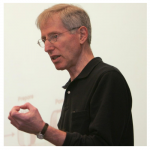
Dr. George Rose
Dr. Rose is passionate about CQ for its propensity to spark metacognition. “Humans share yet another innate characteristic, a desire to know, to understand. But how do we ‘know?’ At Hopkins, we are learning how to learn, a life-long quest for students and professors alike.” Dr. Rose says. He believes that the human desire to understand ourselves and our society is a deeply interdisciplinary, and always pertinent discussion.
Dr. Rose led a CQC of 11 students. In reading The Euthyphro, an early Platonic dialog: “In the dialog, Euthyphro, a priest and self-important authority figure accuses his own father of a capital crime, which he is reporting to the king—dramatic stuff indeed.” Leading the discussion “socratically,” Dr. Rose encouraged the students to emulate Socrates by thinking for themselves, especially in their interactions with authority figures (such as professors). He hopes that the discussion will stick with these students as they approach their next courses at JHU.
Dr. Robbie Shilliam, Krieger
Professor, Department of Political Science
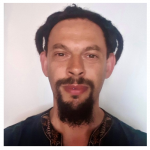
Dr. Robbie Shilliam
As a professor of Political Science, Dr. Shilliam felt particularly connected to this year’s CQ:“The idea of a Common Question prompts us to make our courses more responsive to contemporary issues and challenges that face all of us and that might be especially on the minds of our students.” In response to his CQC experience, he decided to embed more questions surrounding the CQ into his spring curriculum.
“What if a significant percentage of citizens believe that no common ground can exist even in an electoral democracy? And what if that belief owes to the refusal to concede the failure of an insurrection fought 160 years ago over the principle of white supremacy? If white supremacy remains a living belief, despite its military defeat, what grounds do we have for thinking of the common good in a diverse—and increasingly diversifying—society?” Dr. Shilliam believes that these questions, highlighted by the CQCs and recent events, are imperative to incorporate into course material. “It is surely our responsibility as faculty to not only teach disciplines but help our students to mobilize these disciplines to address contemporary issues and challenges.”
Margaret Murphy, Krieger
Director, Center for Visual Arts
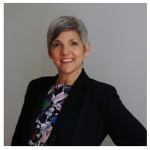
Margaret Murphy
Professor Murphy hosted a CQC on the exhibition at the Baltimore Museum of Art titled: Generations: A History of Black Abstract Art. “Art can be made out of old t-shirts (Shinique Smith), memories of garage sale ephemera (Odili Donald Odita),or basically anything the artist can envision,” Professor Murphy says, and thus focused her CQC discussion around unique materials and their ability to contribute to storytelling. For instance, Shinique Smith uses recycled fabric to make her sculptures, producing a reflection on human behavior and consumption. Not only did she center discussion around the messages of the work, but Professor Murphy saw the medium as a discussion. “We touched on other issues of the common good, such as sustainability and sustainable practices in art making.”
Professor Murphy feels that CQ aligns well with the Center for Visual Art’s inherent mission. She explains, “I include discussion of contributions by diverse artists and their influence on the evolution of contemporary art not only in my own course curriculum, but in deciding what courses to offer in the CVA.” Thus she advocates not only discussing the common good but also demonstrating it by fostering a safe, inclusive environment for making and creating art. “It’s important in art education to create a learning environment where students broaden their knowledge about who artists are, what they make, how they make it and to place these in the context of the history of art. In so doing, students find their creative voices and learn from other artists.”
“It is surely our responsibility as faculty to not only teach disciplines but help our students to mobilize these disciplines to address contemporary issues and challenges.” – Dr. Shilliam
Dr. Daniel Foster, Peabody
Associate Professor and Chair, Department of Liberal Arts
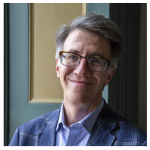
Dr. Daniel Foster
Dr. Foster led a CQC titled “How Does Music Help Us?” during which he directed students to think “not only about how music benefits them personally, but how it has been used to influence the ethics of a society.” Students explored everything from the purported common ethical benefits of music, to how certain music has been used to harm some parts of society, while helping others.
Dr. Foster strongly believes that these discussions are crucial to a Peabody education. “Among musicians, dancers, and anyone else who has to work very hard at technical mastery, there is a tendency to focus on what interests them personally, what excites them, what their teacher wants, and what they need to practice simply for the sake of proficiency,” Dr Foster reflects. “This tends to limit the perspective of the artist and they can forget that there is a whole world out there that may need, want, or benefit from either their work or something completely different.”
“If artists, like scientists and academics, could consider not just what interests them personally but also what benefits others, they might find greater relevance and a greater sense of purpose and satisfaction in their work.”
If you would like to learn more about the Common Question, check out the recording of “What is the Common Good? Hopkins Faculty Address this Year’s Common Question,” the Common Question Twitter account, or the Explore page.
